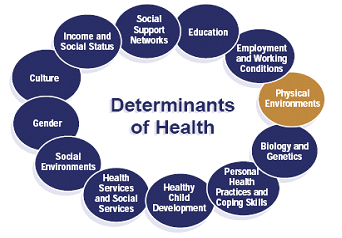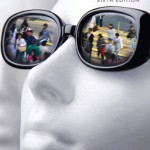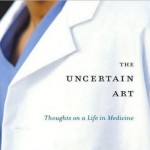 What is population health? Apparently it depends on who you ask. If you ask those with a financial stake in the current health care delivery system, population health means improving the health of patients who currently use (i.e., pay for) the system. You get a different answer if you ask those involved in public health, community development, or social services. They believe “population” should include everyone in the entire geographic community, whether or not those individuals are able to use or benefit from health care services. They also believe “health” should include quality of life and economic well-being – measures that prevent disease in the first place – and not just conditions addressed by the medical model of disease. Read more
What is population health? Apparently it depends on who you ask. If you ask those with a financial stake in the current health care delivery system, population health means improving the health of patients who currently use (i.e., pay for) the system. You get a different answer if you ask those involved in public health, community development, or social services. They believe “population” should include everyone in the entire geographic community, whether or not those individuals are able to use or benefit from health care services. They also believe “health” should include quality of life and economic well-being – measures that prevent disease in the first place – and not just conditions addressed by the medical model of disease. Read more
Category Archives: Health & Medicine
Healthy lifestyles: Social class. A precarious optimism
 Looking back, it’s now obvious that the Lalonde report did initiate a change in our fundamental understanding of the determinants of health – an understanding that is now beginning to flourish. By stressing the influence of non-medical factors on population health, the report made it possible for governments, academics, and foundations to endorse practices outside conventional medical care. Medical practitioners are equally aware that health care by itself cannot secure a population’s health. Following the Lalonde report, politicians, health merchants, and mass media moguls seized on the idea of healthy lifestyles. They tried to convince us that personal responsibility was the primary determinant of health. In the end, however, I am cautiously optimistic that it is not their voices that will prevail. Read more
Looking back, it’s now obvious that the Lalonde report did initiate a change in our fundamental understanding of the determinants of health – an understanding that is now beginning to flourish. By stressing the influence of non-medical factors on population health, the report made it possible for governments, academics, and foundations to endorse practices outside conventional medical care. Medical practitioners are equally aware that health care by itself cannot secure a population’s health. Following the Lalonde report, politicians, health merchants, and mass media moguls seized on the idea of healthy lifestyles. They tried to convince us that personal responsibility was the primary determinant of health. In the end, however, I am cautiously optimistic that it is not their voices that will prevail. Read more
Healthy lifestyles: The unfortunate consequences
 Collectively, increased health consciousness was followed by increased health care costs. The promotion of healthy lifestyles was not the only reason health consciousness increased in the late 20th century. And there were, of course, many other forces at work that increased the costs of health care. But it seems fair to say that the new perspective on health ended up providing opportunities to expand the demand for more medical services. Any hope that individual responsibility for healthy lifestyles would reduce costs – still touted today by some politicians and health care economists — turned out to be a mirage. Read more
Collectively, increased health consciousness was followed by increased health care costs. The promotion of healthy lifestyles was not the only reason health consciousness increased in the late 20th century. And there were, of course, many other forces at work that increased the costs of health care. But it seems fair to say that the new perspective on health ended up providing opportunities to expand the demand for more medical services. Any hope that individual responsibility for healthy lifestyles would reduce costs – still touted today by some politicians and health care economists — turned out to be a mirage. Read more
Healthy lifestyles: The antecedents
 In the 1970s, public health policies began to promote the idea that individuals are responsible for their health and therefore have an obligation to adopt healthy lifestyles. Over the ensuing decades, health became an especially popular topic for media coverage as well as a lucrative market for vendors of health-related products and services. What followed was a substantial increase in health consciousness and greater anxiety about all things that concern the body. Do healthy lifestyles produce better health? That they should may seem like common sense, which is one reason it’s been so easy to promote the idea. The question is difficult to answer with absolute certainty, however. Read more
In the 1970s, public health policies began to promote the idea that individuals are responsible for their health and therefore have an obligation to adopt healthy lifestyles. Over the ensuing decades, health became an especially popular topic for media coverage as well as a lucrative market for vendors of health-related products and services. What followed was a substantial increase in health consciousness and greater anxiety about all things that concern the body. Do healthy lifestyles produce better health? That they should may seem like common sense, which is one reason it’s been so easy to promote the idea. The question is difficult to answer with absolute certainty, however. Read more
Profit-driven medicine: Satisfying patients at the expense of their health
Patient Satisfaction & Patient-Centered Care: Necessary but Not Equal bit.ly/MN7Yan JAMA Highly satisfied patients had worse outcomes
— Jan Henderson (@HealthCulture) July 26, 2012
Corporate medicine may achieve its goal creating greater customer retention, loyalty, and repeat business. Patients are not well-served, however, when the commercialized, privatized business model is applied to health care. The result is superficially satisfied patients who make greater use of the health care system at the expense of their own health. Read more
On healthism, the social determinants of health, conformity, & embracing the abnormal: (4) The abnormal part
 I was initially attracted to the subject of healthism because I felt I’d been a victim of health messaging. But I was also attracted by a sense that something deeper was going on. I now see that the taken-for-granted – the questions that don’t get asked in media coverage of health issues or in the policy positions of governments — unites my blogging topics. In whose interest is neoliberalism? Medicalization? Conformity? Non-holistic medicine? The commercialization of health? Healthism? More often than not the answer is that it’s not in my interest. Nor is it in the interests of the society I want to live in. And that makes these topics personally meaningful to me. Read more
I was initially attracted to the subject of healthism because I felt I’d been a victim of health messaging. But I was also attracted by a sense that something deeper was going on. I now see that the taken-for-granted – the questions that don’t get asked in media coverage of health issues or in the policy positions of governments — unites my blogging topics. In whose interest is neoliberalism? Medicalization? Conformity? Non-holistic medicine? The commercialization of health? Healthism? More often than not the answer is that it’s not in my interest. Nor is it in the interests of the society I want to live in. And that makes these topics personally meaningful to me. Read more
On healthism, the social determinants of health, conformity, & embracing the abnormal: (3) Connections
 ~ Conformity and corporatism: Surgically altering one’s appearance (e.g., designer feet) presumably increases one’s chance of success in a society that commodifies bodies (i.e., in a society where salary, career advancement, social status and marriage prospects are influenced by appearance). Altering one’s personality with psychopharmaceuticals allows one to project the qualities necessary for success in a highly competitive society. Read more
~ Conformity and corporatism: Surgically altering one’s appearance (e.g., designer feet) presumably increases one’s chance of success in a society that commodifies bodies (i.e., in a society where salary, career advancement, social status and marriage prospects are influenced by appearance). Altering one’s personality with psychopharmaceuticals allows one to project the qualities necessary for success in a highly competitive society. Read more
On healthism, the social determinants of health, conformity, & embracing the abnormal: (2) Economics & the socio-political
 Social determinants of health (often abbreviated SDOH) refers to unequally distributed social and economic conditions that correlate with unequal and inequitable distributions of health and disease. Presumably there is a causal relationship between the two, not merely a correlation. Definitively identifying the causal mechanisms, however, is difficult. A great many things influence our health, including things we’re not even aware of yet, and it’s difficult to isolate and scientifically study the ones we can identify. Read more
Social determinants of health (often abbreviated SDOH) refers to unequally distributed social and economic conditions that correlate with unequal and inequitable distributions of health and disease. Presumably there is a causal relationship between the two, not merely a correlation. Definitively identifying the causal mechanisms, however, is difficult. A great many things influence our health, including things we’re not even aware of yet, and it’s difficult to isolate and scientifically study the ones we can identify. Read more
On healthism, the social determinants of health, conformity, & embracing the abnormal: (1) Bodies, minds & medicine
 It’s always hard to be sure about these things, but I think the reason I decided to take a ‘sabbatical’ from blogging last July was that I was interested in too many seemingly unrelated topics. Writing about all of them left me feeling like I never got to the ‘meat’ of any one of them. And I couldn’t convince myself to focus on just one or two things, since that would mean abandoning the others, which I was unwilling to do. Read more
It’s always hard to be sure about these things, but I think the reason I decided to take a ‘sabbatical’ from blogging last July was that I was interested in too many seemingly unrelated topics. Writing about all of them left me feeling like I never got to the ‘meat’ of any one of them. And I couldn’t convince myself to focus on just one or two things, since that would mean abandoning the others, which I was unwilling to do. Read more
SCOTUS, the Affordable Care Act, and an ugly American tradition
 There are reasons, then, why health care might not become a campaign issue for this particular Republican presidential nominee. And if it does not, I wonder if those in favor of universal health care realize how easily we could lose this historic achievement. Read more
There are reasons, then, why health care might not become a campaign issue for this particular Republican presidential nominee. And if it does not, I wonder if those in favor of universal health care realize how easily we could lose this historic achievement. Read more
What is healthism? (part two)
 Our financially and professionally entrenched system of medical care has a vested interest in maintaining an understanding of health that preserves the status quo. Part of the power of our biomedical culture is that its contingency – the very real possibility that it could be different — is ordinarily invisible to us. What would it take to imagine a widely shared understanding of health that called for dramatic changes not only in how our health care needs are met, but in the conditions under which we live our lives? This is the question that I hope an examination of healthism will provoke. Read more
Our financially and professionally entrenched system of medical care has a vested interest in maintaining an understanding of health that preserves the status quo. Part of the power of our biomedical culture is that its contingency – the very real possibility that it could be different — is ordinarily invisible to us. What would it take to imagine a widely shared understanding of health that called for dramatic changes not only in how our health care needs are met, but in the conditions under which we live our lives? This is the question that I hope an examination of healthism will provoke. Read more
What is healthism? (part one)
 Throughout history there’s been an understandable desire to find connections between our behavior and our health. Human beings have practiced health regimens involving diet, exercise and hygiene since antiquity. When medicine was based on the humoral theory of disease, for example, individuals were advised to purge the body in the spring and, in the summer, avoid foods or activities that caused heat. Bathing in ice water was recommended in the 19th century. Mark Twain quoted the advice: “the only way to keep your health is to eat what you don’t want, drink what you don’t like, and do what you’d druther not.” Read more
Throughout history there’s been an understandable desire to find connections between our behavior and our health. Human beings have practiced health regimens involving diet, exercise and hygiene since antiquity. When medicine was based on the humoral theory of disease, for example, individuals were advised to purge the body in the spring and, in the summer, avoid foods or activities that caused heat. Bathing in ice water was recommended in the 19th century. Mark Twain quoted the advice: “the only way to keep your health is to eat what you don’t want, drink what you don’t like, and do what you’d druther not.” Read more
Guest post: Is the prevalence of depression related to the modern empowerment of the individual?
 When a medical clinician examines a patient, she first determines the presenting symptoms, considers which bodily functions might account for those symptoms, arrives at a diagnosis, and provides the most appropriate treatment. But what if the presenting symptom is depression? As Alain Ehrenberg points out, “depression, like any mental illness, is not a disease that can be assigned to a part of the body.” In fact, as Ehrenberg goes on to say: “when psychiatry can discover the cause of a mental illness, as happened with epilepsy, it is no longer a mental illness.” Such has been the dilemma of the history of psychiatry. Read more
When a medical clinician examines a patient, she first determines the presenting symptoms, considers which bodily functions might account for those symptoms, arrives at a diagnosis, and provides the most appropriate treatment. But what if the presenting symptom is depression? As Alain Ehrenberg points out, “depression, like any mental illness, is not a disease that can be assigned to a part of the body.” In fact, as Ehrenberg goes on to say: “when psychiatry can discover the cause of a mental illness, as happened with epilepsy, it is no longer a mental illness.” Such has been the dilemma of the history of psychiatry. Read more
Why medicine is not a science and health care is not health
 My real objection to medicine as a science is that by focusing on what can readily be quantified, it ignores what cannot, such as the social determinants of health and disease. Medicine’s desire for the respectability that comes with being a science gets in the way of determining what could actually make us healthier. Read more
My real objection to medicine as a science is that by focusing on what can readily be quantified, it ignores what cannot, such as the social determinants of health and disease. Medicine’s desire for the respectability that comes with being a science gets in the way of determining what could actually make us healthier. Read more
Recommended (online) reading
 I’m still on “sabbatical.” Mostly reading. Thinking about what I most want to write about. I know what my interests are — the problem is, I have too many. Meanwhile, here are some blogs I enjoy reading. Read more
I’m still on “sabbatical.” Mostly reading. Thinking about what I most want to write about. I know what my interests are — the problem is, I have too many. Meanwhile, here are some blogs I enjoy reading. Read more
When the poor were contagious
 Will the London riots raise questions about a world that doesn’t care about the socially disadvantaged? Questions, yes. But will that be enough to bring about a change in attitudes and policies? Probably not. Unfortunately, the situation will need to get much worse. Even when that happens, current financial interests are likely to prevail. A discouraging prospect, yes, but a struggle worth waging. Read more
Will the London riots raise questions about a world that doesn’t care about the socially disadvantaged? Questions, yes. But will that be enough to bring about a change in attitudes and policies? Probably not. Unfortunately, the situation will need to get much worse. Even when that happens, current financial interests are likely to prevail. A discouraging prospect, yes, but a struggle worth waging. Read more
On sabbatical
 I’m taking a break from frequent blogging – want to take time to read, do some research, reflect, and think about what I most want to write about next. At the moment, my inclination is to write about the history of medicine, starting with the Enlightenment and the transformation of medicine into a science in the 19th century. I want to think about what light that sheds on the 20th century. Read more
I’m taking a break from frequent blogging – want to take time to read, do some research, reflect, and think about what I most want to write about next. At the moment, my inclination is to write about the history of medicine, starting with the Enlightenment and the transformation of medicine into a science in the 19th century. I want to think about what light that sheds on the 20th century. Read more
The Dreams of the Founders of Family Medicine
 While they were mindful of and grateful for the powerful advances in medicine, they believed that social and economic conditions which influenced the life of a person and a community had a greater impact on a person’s life and health than did the power and might of all of medicine.
While they were mindful of and grateful for the powerful advances in medicine, they believed that social and economic conditions which influenced the life of a person and a community had a greater impact on a person’s life and health than did the power and might of all of medicine.
They believed that medicine was a profession that involved more than a technical set of skills and a high income. They accepted the responsibility of caring for the whole person; mind, body and soul. Read more
Guest post: Guilt-edged
 Now The Globe and Mail Life section reveals I could be guilty of hastening my demise by eating fruit. See The New Enemy in today’s paper, which warns that bananas are the arch enemy of the serious dieter and “that the high fructose content makes grapes and cherries as unhealthy as a plate of cookies.” Or not. Depending on which ‘experts’ you believe. Read more
Now The Globe and Mail Life section reveals I could be guilty of hastening my demise by eating fruit. See The New Enemy in today’s paper, which warns that bananas are the arch enemy of the serious dieter and “that the high fructose content makes grapes and cherries as unhealthy as a plate of cookies.” Or not. Depending on which ‘experts’ you believe. Read more
Is a liberal arts education good preparation for being a doctor?
 Literature, fine art, poetry, music serve to remind overworked clinicians that they are part of a timeless tradition of healing whole human beings, who present in all their magnificence and complexity. Also, that physicians themselves participate in the tradition of physicians as humanists. Perhaps that’s why a liberal arts education – in my opinion – makes an important contribution to the practice of medicine today. Read more
Literature, fine art, poetry, music serve to remind overworked clinicians that they are part of a timeless tradition of healing whole human beings, who present in all their magnificence and complexity. Also, that physicians themselves participate in the tradition of physicians as humanists. Perhaps that’s why a liberal arts education – in my opinion – makes an important contribution to the practice of medicine today. Read more
The misuse of health statistics by politicians
 Comparing five-year survival rates for the US and England is fundamentally misleading. Prostate cancer is overdiagnosed in the US. Many men who receive a diagnosis do not have cancer or will never develop symptoms, let alone die from the disease. The estimate for the US is that 48% of men diagnosed with prostate cancer do not have a progressive form of the disease. In England, on the other hand, testing is performed after symptoms appear, so a diagnosis is much more significant and meaningful. Read more
Comparing five-year survival rates for the US and England is fundamentally misleading. Prostate cancer is overdiagnosed in the US. Many men who receive a diagnosis do not have cancer or will never develop symptoms, let alone die from the disease. The estimate for the US is that 48% of men diagnosed with prostate cancer do not have a progressive form of the disease. In England, on the other hand, testing is performed after symptoms appear, so a diagnosis is much more significant and meaningful. Read more
Why is it so hard to reduce US health care costs?
 A modern version of the Hippocratic Oath, the Physician Charter, commits physicians to work toward “the wise and cost-effective management of limited clinical resources.” But there’s little physicians – or anyone else – can do to change the behavior of politicians, insurance companies, pharmaceutical companies, or other entrenched stakeholders. It would indeed be heartening to see a visionary, public-minded physician emerge as a leader of the medical profession in the fight to solve this important and extremely difficult dilemma. Read more
A modern version of the Hippocratic Oath, the Physician Charter, commits physicians to work toward “the wise and cost-effective management of limited clinical resources.” But there’s little physicians – or anyone else – can do to change the behavior of politicians, insurance companies, pharmaceutical companies, or other entrenched stakeholders. It would indeed be heartening to see a visionary, public-minded physician emerge as a leader of the medical profession in the fight to solve this important and extremely difficult dilemma. Read more
Why are we so willing to undergo cosmetic surgery?
 Members of traditional societies accepted being told when and how to reshape their bodies. Their decision was binary: either participate or leave the group. In contemporary society, each individual is responsible for choosing and effecting her own reshaping, thus demonstrating her fitness for membership within a given field. Hierarchical position depends on displaying attunement to the field …. including what kind of body counts as right. The right body demonstrates having made the right assessment of capital, and thus becomes a potent display of rights to participation and position. Read more
Members of traditional societies accepted being told when and how to reshape their bodies. Their decision was binary: either participate or leave the group. In contemporary society, each individual is responsible for choosing and effecting her own reshaping, thus demonstrating her fitness for membership within a given field. Hierarchical position depends on displaying attunement to the field …. including what kind of body counts as right. The right body demonstrates having made the right assessment of capital, and thus becomes a potent display of rights to participation and position. Read more
Bruckner on the family, being gay, and AIDS activism
 The seriously ill, the traumatized, and accident victims, strong in their common weaknesses, manifest their freedom with regard to what had previously put them in the category of subcitizens, those receiving assistance. They are fighting against the segregation that made them lepers, bearers of bad news. They are fighting to remain members of the human community. Read more
The seriously ill, the traumatized, and accident victims, strong in their common weaknesses, manifest their freedom with regard to what had previously put them in the category of subcitizens, those receiving assistance. They are fighting against the segregation that made them lepers, bearers of bad news. They are fighting to remain members of the human community. Read more
Pascal Bruckner on doctors and patients
 Medical science’s individual servants are crushed under the weight of its promises, becoming commonplace and losing their authority; they are simple service providers who can be sued – often justifiably, moreover – if they commit an error. While the medical researcher, the scientist, and some surgeons whose skill amounts to genuine artistic genius retain immense prestige, in many cases the doctor is now seen only as a repairman who gets the machine running again until the next breakdown. Read more
Medical science’s individual servants are crushed under the weight of its promises, becoming commonplace and losing their authority; they are simple service providers who can be sued – often justifiably, moreover – if they commit an error. While the medical researcher, the scientist, and some surgeons whose skill amounts to genuine artistic genius retain immense prestige, in many cases the doctor is now seen only as a repairman who gets the machine running again until the next breakdown. Read more
Can pharmaceutical drugs benefit society?
 There’s more to the value of health care than clinical effectiveness for patients and cost-effectiveness for individuals and governments. As we imagine the future of heatlh care, a welcome addition would be to plan for wider benefits to society. At this point in time in the US, it’s hard to imagine overcoming the political difficulties involved in reaching an agreement on what would benefit society. But it’s worth anticipating the possibility of a better future – the future we would want for ourselves and our children. Read more
There’s more to the value of health care than clinical effectiveness for patients and cost-effectiveness for individuals and governments. As we imagine the future of heatlh care, a welcome addition would be to plan for wider benefits to society. At this point in time in the US, it’s hard to imagine overcoming the political difficulties involved in reaching an agreement on what would benefit society. But it’s worth anticipating the possibility of a better future – the future we would want for ourselves and our children. Read more
What gets lost in the bureaucratization of medicine
 The bureaucratization of medicine with increasingly complex rules, codes, algorithms, prompts, bylaws, schedules, and administrative structure is leaving its mark, but medicine at its fundamental is still about suffering, healing, and comforting; it is about individuals; it is about relationships and trust; it is about stories. Read more
The bureaucratization of medicine with increasingly complex rules, codes, algorithms, prompts, bylaws, schedules, and administrative structure is leaving its mark, but medicine at its fundamental is still about suffering, healing, and comforting; it is about individuals; it is about relationships and trust; it is about stories. Read more
Patient safety and corporate profits
 A corporate board, on the other hand — whether it governs a hospital, a pharmaceutical company or an insurance giant — is legally required to give priority to stock holders over patients. When it comes to matters of health – which is to say life, death, and disability – it seems obvious to me that corporate boards are the least desirable level at which decisions about patient safety should be made. Decisions like increasing product sales at the expense of patient safety.
A corporate board, on the other hand — whether it governs a hospital, a pharmaceutical company or an insurance giant — is legally required to give priority to stock holders over patients. When it comes to matters of health – which is to say life, death, and disability – it seems obvious to me that corporate boards are the least desirable level at which decisions about patient safety should be made. Decisions like increasing product sales at the expense of patient safety.
Read more
The emotional burdens of patient care
 How are we to protect ourselves from the emotional hazards of the practice of medicine? How are we to stand with our patients through the very worst while avoiding depression, significant stress reactions, and even substance abuse or addiction? Read more
How are we to protect ourselves from the emotional hazards of the practice of medicine? How are we to stand with our patients through the very worst while avoiding depression, significant stress reactions, and even substance abuse or addiction? Read more
Guest post: A sound mind in a disintegrating body
 In order to attain the corpore sano required by today’s fanatical health and hotness community you have to devote two or three hours a day to honing the body beautiful so that it contains no lumps, bra overhang or bits that have to be sucked in when you walk past a mirror. This involves lunges, squats, curls, lat pulldowns, pushups, bench presses and eventual death from exhaustion unless you are of that rare elite who are truly in The Zone. Read more
In order to attain the corpore sano required by today’s fanatical health and hotness community you have to devote two or three hours a day to honing the body beautiful so that it contains no lumps, bra overhang or bits that have to be sucked in when you walk past a mirror. This involves lunges, squats, curls, lat pulldowns, pushups, bench presses and eventual death from exhaustion unless you are of that rare elite who are truly in The Zone. Read more

